iHeartDogs is reader-supported. When you buy via links on our site, we may earn an affiliate commission at no extra cost to you.
As our canine companions age, they face a myriad of health challenges, one of which can be cataracts. This clouding of the lens in a dog’s eye can significantly impair vision and affect their quality of life. However, advances in veterinary medicine have provided dog owners with various options to manage and treat this condition. In this article, we will delve into the best dog cataract drops and treatments, offering insights and guidance to help restore clarity to your furry friend’s world.
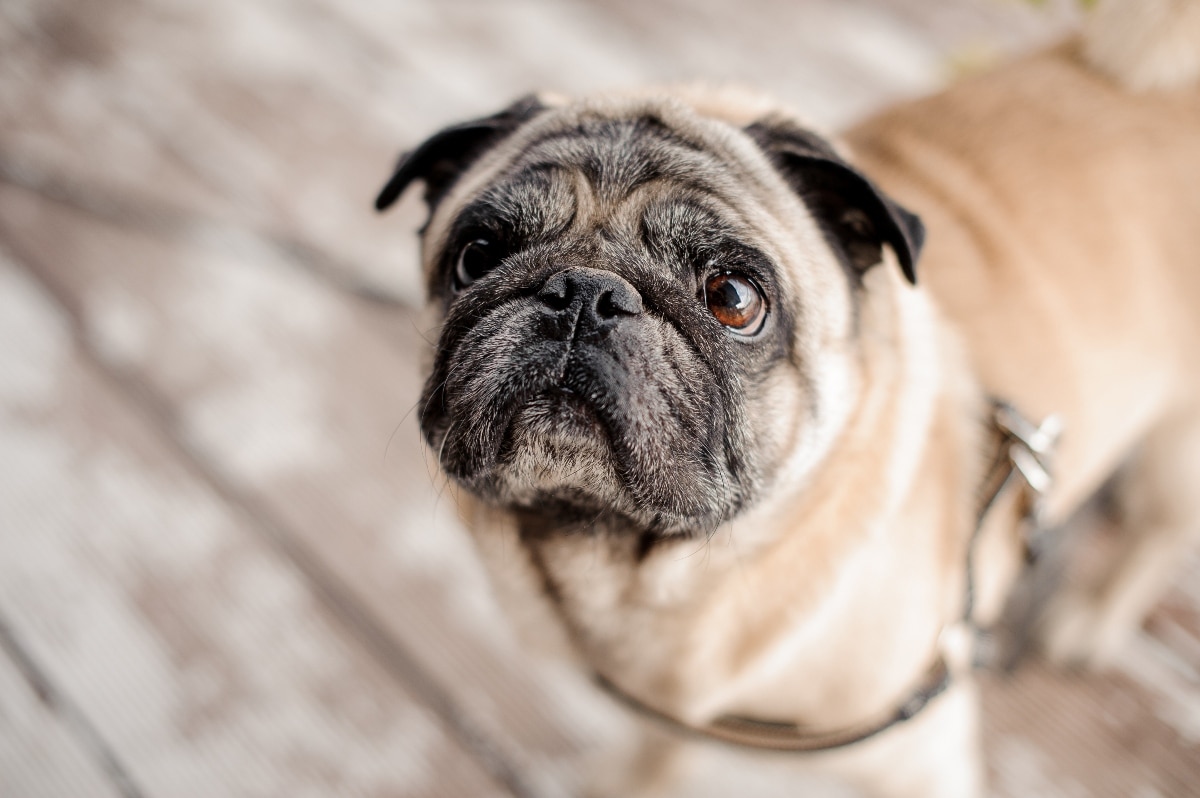
Top Dog Cataract Solutions to Support Clearer Vision
The Plush Paws Products Advanced Lanosterol Solution + NAC is a therapeutic eye lubricating solution for pets, specifically designed to address cataracts and promote vision health. The product combines the power of lanosterol and N-acetylcarnosine to clear cloudiness in the eyes caused by cataracts and provide antioxidant support. This preventative measure can be used for pets as they age to maintain healthy and clear lenses in their eyes. Additionally, the drops can be used for other animals like guinea pigs, horses, and rabbits to improve lubrication and clarity in their eyes.
#2 – NOVEHA Cataract Drops for Pets
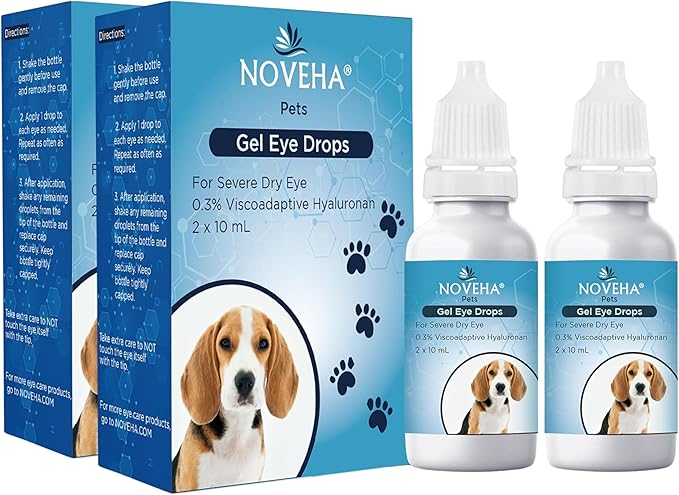 NOVEHA Cataract Drops for Pets is a therapeutic eye lubricating drop designed to improve vision clarity, health, and dryness in dogs, cats, horses, and rabbits. The drops contain Lanosterol and N-acetylcarnosine, which have been scientifically proven to prevent and even reverse cataracts with continued use. The product is considered safe as it replenishes the natural supply of these ingredients that may be lacking in the body. The recommended use is to apply 5-10 drops to each eye twice a day, with adjustments made after the first week based on severity.
NOVEHA Cataract Drops for Pets is a therapeutic eye lubricating drop designed to improve vision clarity, health, and dryness in dogs, cats, horses, and rabbits. The drops contain Lanosterol and N-acetylcarnosine, which have been scientifically proven to prevent and even reverse cataracts with continued use. The product is considered safe as it replenishes the natural supply of these ingredients that may be lacking in the body. The recommended use is to apply 5-10 drops to each eye twice a day, with adjustments made after the first week based on severity.
#3 – Ocu-GLO Vision Supplement for Small Dogs (45ct)
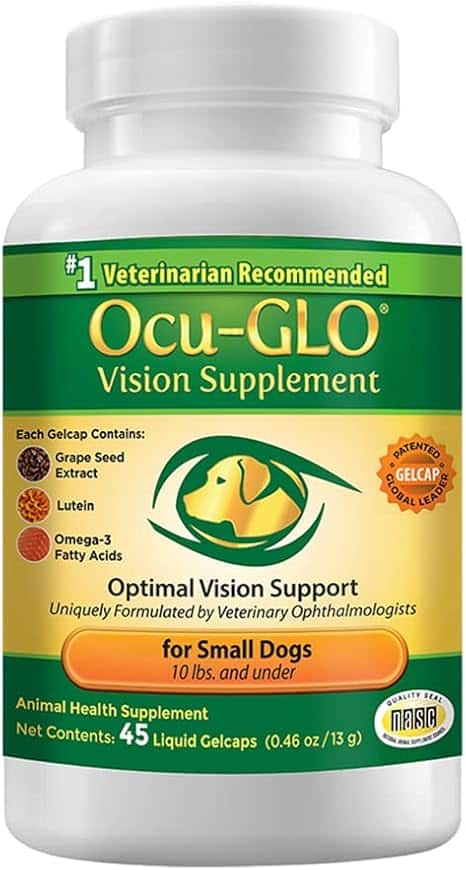 The Ocu-GLO Vision Supplement for Small Dogs is a veterinarian-recommended product that is designed to promote and support optimal eyesight in dogs. It contains a combination of eye health nutrients and antioxidants to naturally support the health of your dog’s eyes. The supplement is easy to administer and can be given whole or added to wet food, making it suitable for dogs of all sizes. Developed by leading animal eye specialists, the Ocu-GLO vision supplement prioritizes the quality of its ingredients.
The Ocu-GLO Vision Supplement for Small Dogs is a veterinarian-recommended product that is designed to promote and support optimal eyesight in dogs. It contains a combination of eye health nutrients and antioxidants to naturally support the health of your dog’s eyes. The supplement is easy to administer and can be given whole or added to wet food, making it suitable for dogs of all sizes. Developed by leading animal eye specialists, the Ocu-GLO vision supplement prioritizes the quality of its ingredients.
What Should I Look for When Choosing a Dog Cataract Drop or Treatment?
When selecting a cataract drop or treatment for your dog, it’s crucial to ensure it’s both safe and effective. Here are some factors you should consider:
- Consultation with a Veterinarian: Before starting any treatment, always consult with your veterinarian or a veterinary ophthalmologist. They can provide an accurate diagnosis and recommend suitable treatments or drops.
- Active Ingredients: Look for active ingredients known for their eye health benefits. Ingredients such as N-acetylcarnosine (NAC) are commonly found in canine cataract eye drops due to their antioxidative properties.
- Safety: Ensure the product is formulated specifically for dogs. Some ingredients safe for human use might not be suitable for dogs.
- Brand Reputation: Choose products from reputable brands known for their quality in pet health care.
- Ease of Application: The design of the dropper and the viscosity of the solution can influence how easy it is to apply the drops. Reviews can provide insights into this.
- Cost: While it’s essential not to compromise on quality, compare prices and reviews to ensure you’re getting good value for your money.
- Treatment Duration and Frequency: Understand how long the treatment should be administered and how frequently the drops should be applied. This will help you set a routine for your dog.
- Possible Side Effects: Research or ask your vet about any potential side effects of the product.
- Effectiveness: While no treatment guarantees complete reversal of cataracts, some products might help slow down the progression or improve symptoms. Check user reviews and consult your vet for their experiences with the product.
- Other Health Considerations: If your dog is on other medications or has additional health issues, discuss potential drug interactions or contraindications with your vet.
Remember, while certain drops and treatments can help manage symptoms or slow the progression of cataracts, surgery is the only definitive treatment to restore vision lost to mature cataracts.
Related: The Best Red Light Therapy for Dogs
Frequently Asked Questions About Dog Cataract Treatments
1. What are dog cataracts?
Cataracts in dogs refer to the clouding of the lens in the eye, leading to decreased vision or potential blindness. They can result from aging, genetics, injuries, or underlying diseases like diabetes.
2. How can I tell if my dog has cataracts?
Common signs include a cloudy or bluish-gray appearance in the eye, difficulty seeing in low light, clumsiness, or frequent bumping into things. A definite diagnosis requires an examination by a veterinarian.
3. Are cataracts painful for dogs?
While cataracts themselves aren’t painful, they can lead to inflammation or increased eye pressure (glaucoma), which can be painful. Regular check-ups help in catching and managing such complications early.
4. Can dog cataracts be reversed?
While some treatments claim to reduce or halt the progression of cataracts, surgical removal is the only definitive way to restore vision lost due to mature cataracts.
5. How effective are cataract drops for dogs?
Some cataract eye drops contain antioxidants, which may help reduce the progression of early cataracts. However, their effectiveness varies, and they’re not a replacement for surgical treatments in advanced cases.
6. Are there risks associated with cataract surgery for dogs?
As with any surgery, there are potential risks, including infection, inflammation, and retinal detachment. However, with experienced veterinary ophthalmologists and proper post-operative care, the success rate is high.
7. How much does cataract surgery for dogs cost?
The cost varies based on location, the specific condition of the eye, and the veterinary clinic. It can range from $1,500 to $5,000 per eye, including pre-operative tests and post-operative medications.
8. Can cataracts in dogs be prevented?
While some cataracts, especially age-related or genetic ones, cannot be prevented, maintaining your dog’s overall health, ensuring a balanced diet, and addressing underlying conditions like diabetes can reduce the risk.
9. How long is the recovery period after cataract surgery?
Recovery times can vary, but most dogs start to show improved vision within a few days. Complete healing and stabilization can take a few weeks, during which regular check-ups and medications are vital.
10. Are there breeds more prone to developing cataracts?
Yes, certain breeds, including Cocker Spaniels, Poodles, Siberian Huskies, and Boston Terriers, have a higher genetic predisposition to developing cataracts. Regular eye check-ups are beneficial for these breeds.
11. Can cataracts in dogs come back after surgery?
In most cases, cataracts do not return after successful surgical removal. However, some dogs may develop a condition called “posterior capsule opacification” (PCO), sometimes referred to as a “secondary cataract,” which can cause cloudiness in the lens capsule that remains after surgery. This is generally manageable with follow-up care and may require further treatment in some cases.
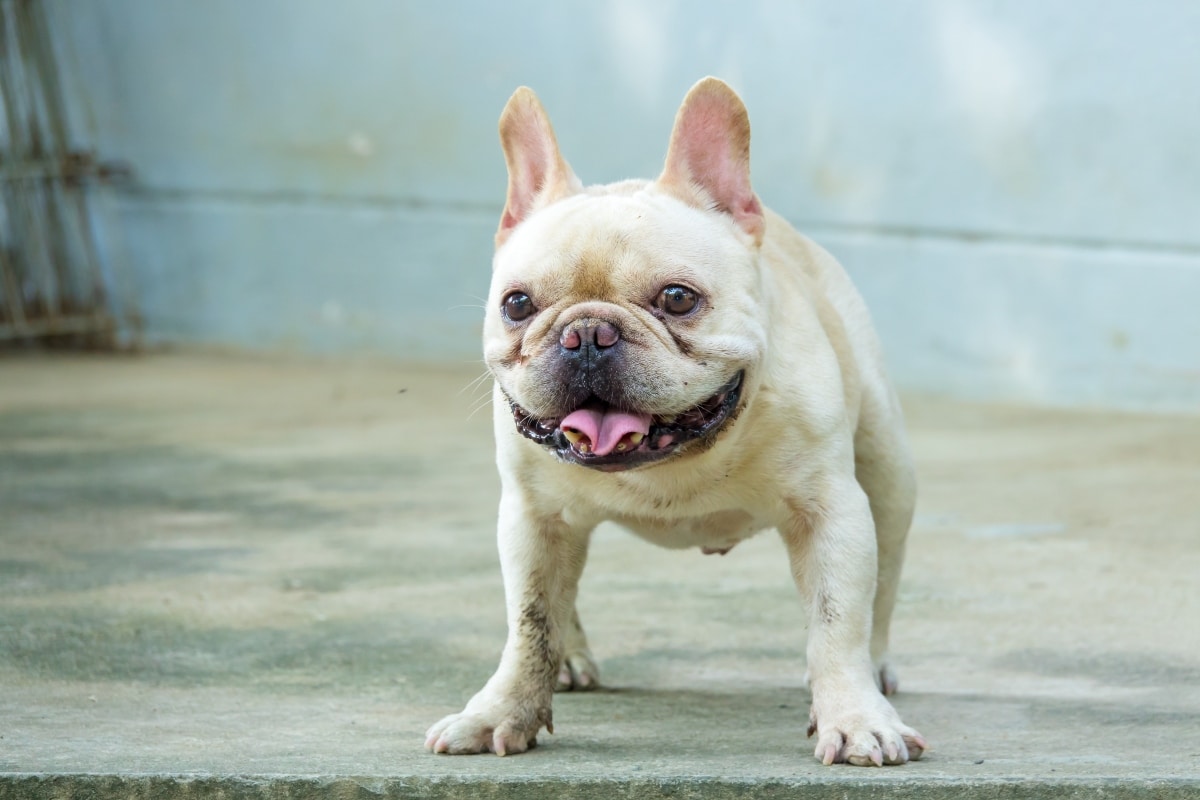
Best Products to Keep Your Dog’s Eyes Healthy
Maintaining our dogs’ health and comfort as they age is paramount. While cataracts might seem daunting initially, there are various treatments and drops available to manage or even reverse the condition. Whether you opt for surgical intervention or medicated drops, it’s essential to consult with your veterinarian to determine the best course of action for your pet. With the right care, our dogs can continue to see the world with joy and curiosity, even in their golden years.

 2 days ago
7
2 days ago
7
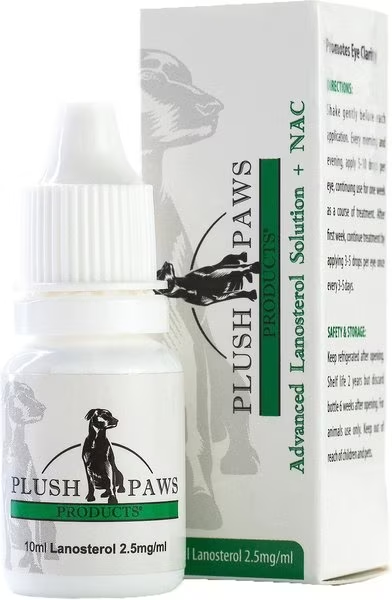


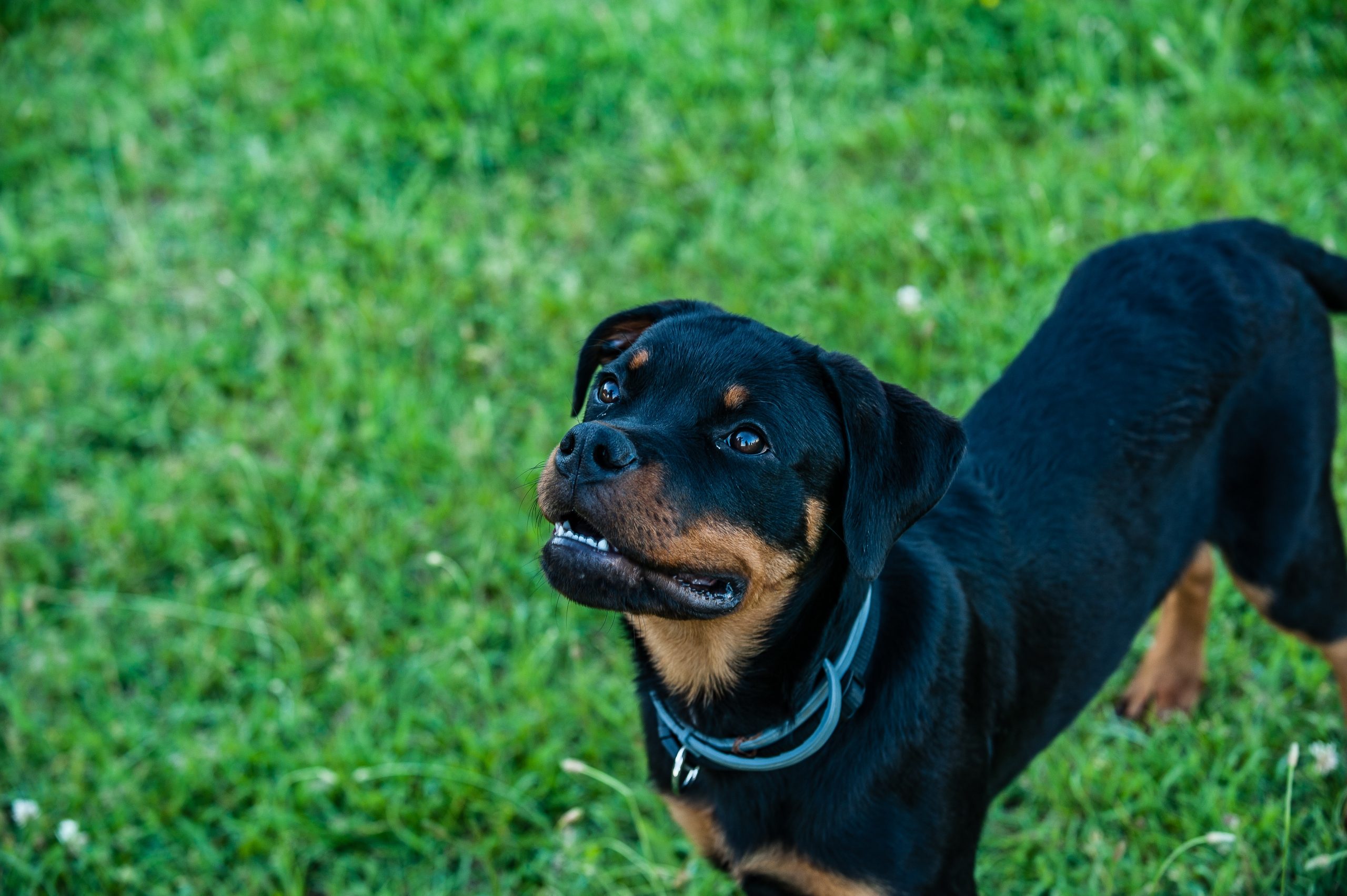

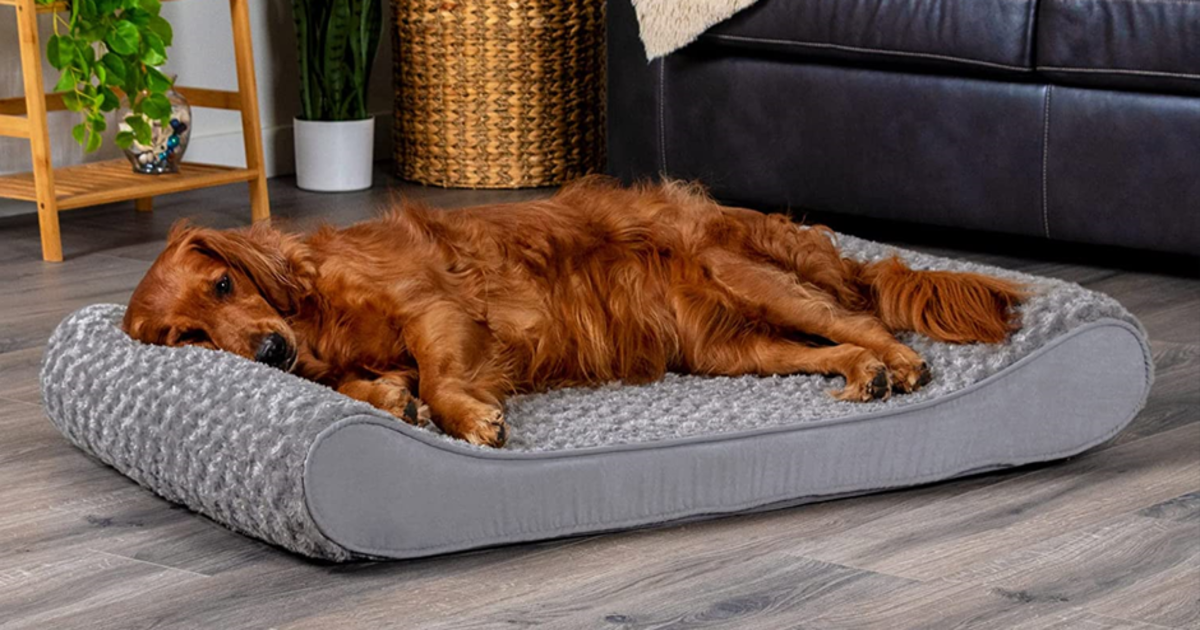
![Blue Buffalo vs. Iams Who Wins? [2025]](https://iheartdogs.com/wp-content/uploads/2023/09/animal-company-3047244_1280-2.jpg)
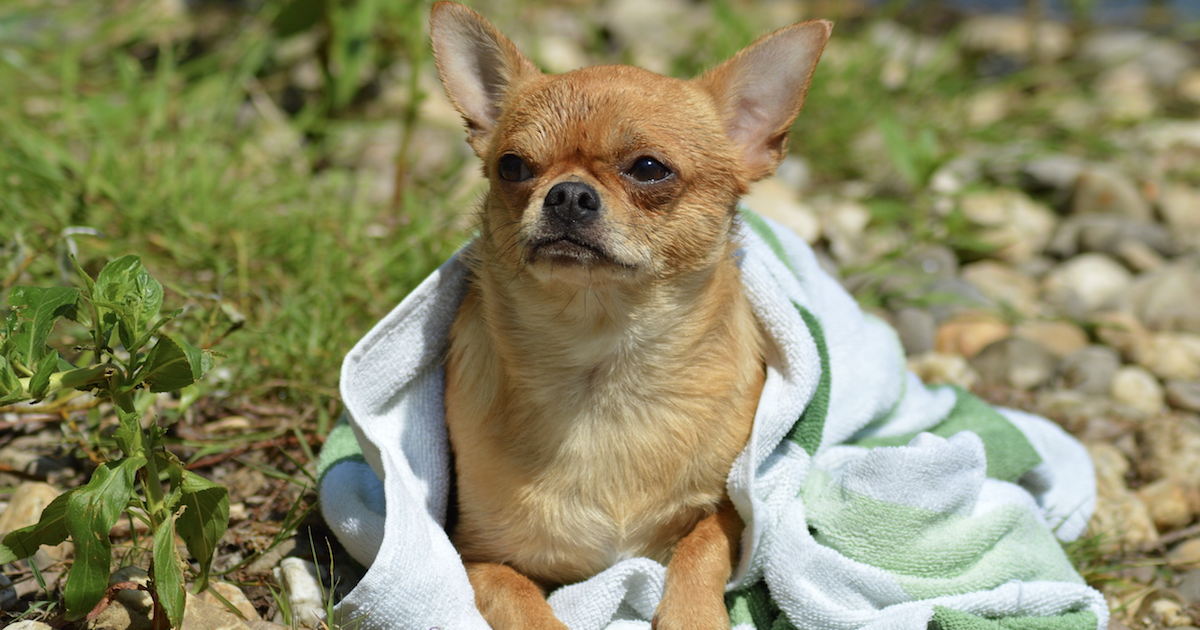
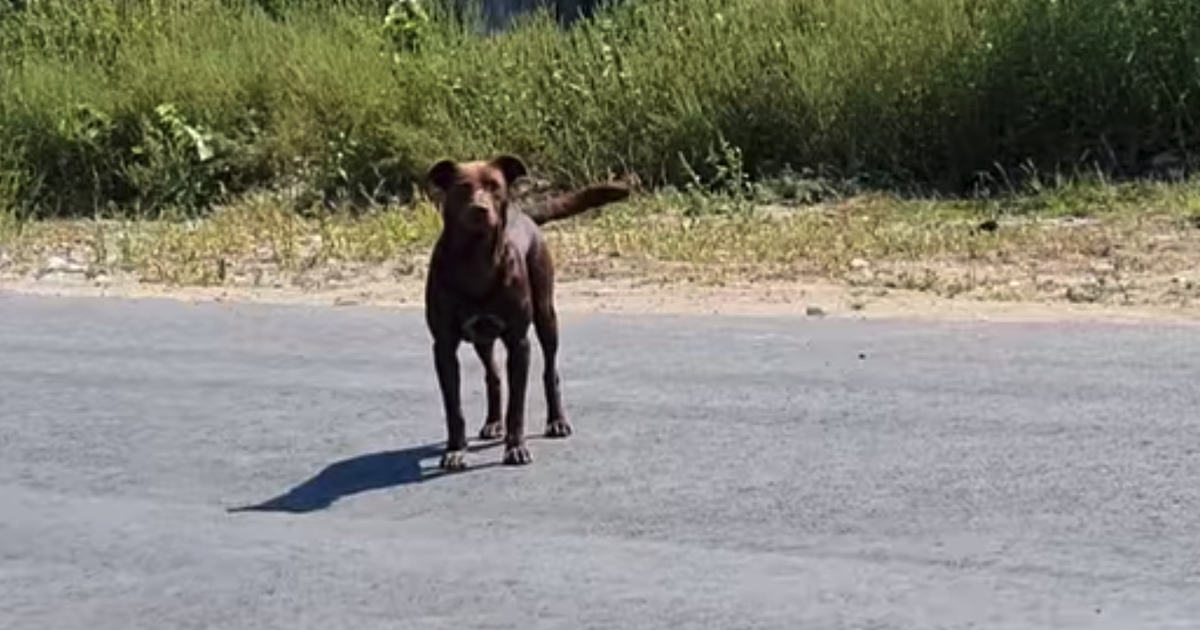

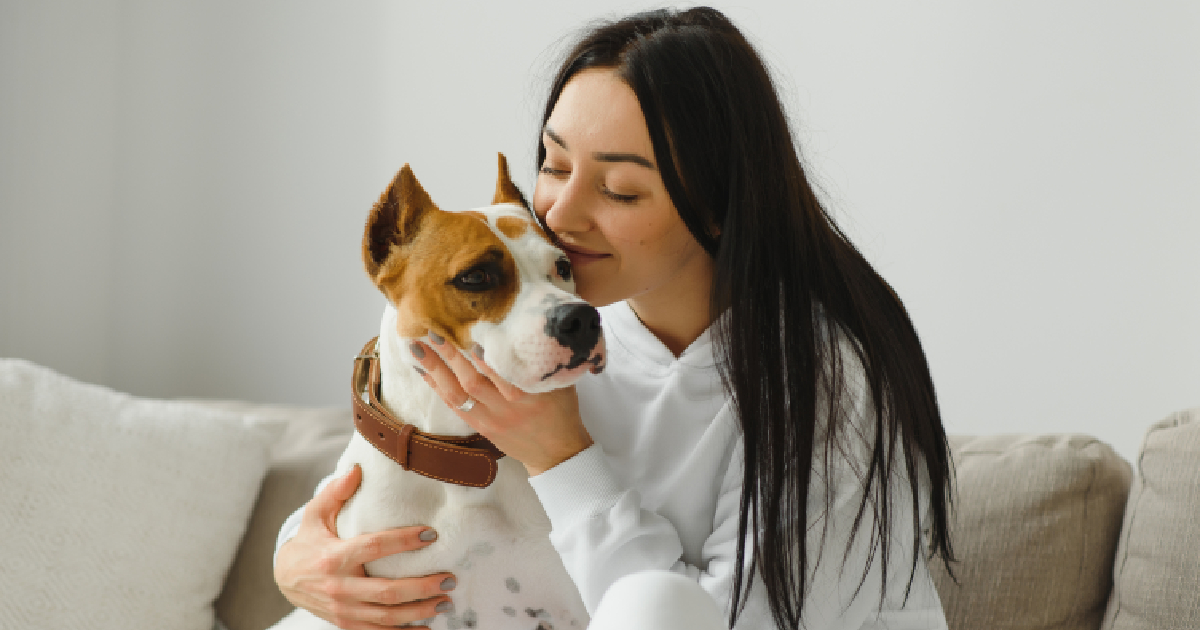
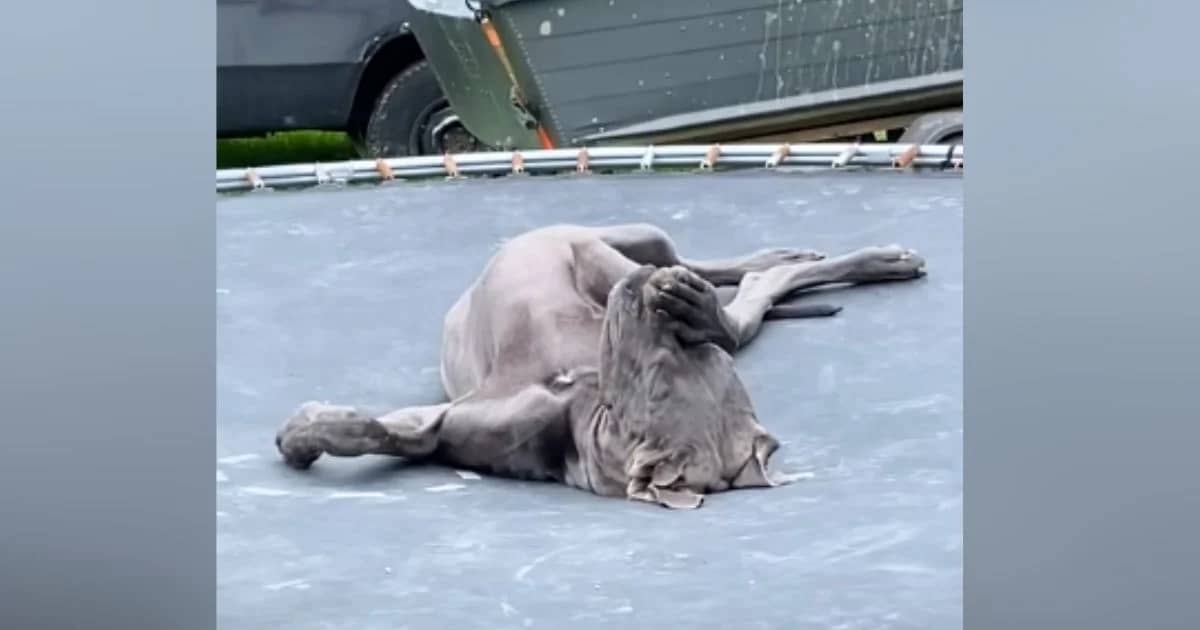


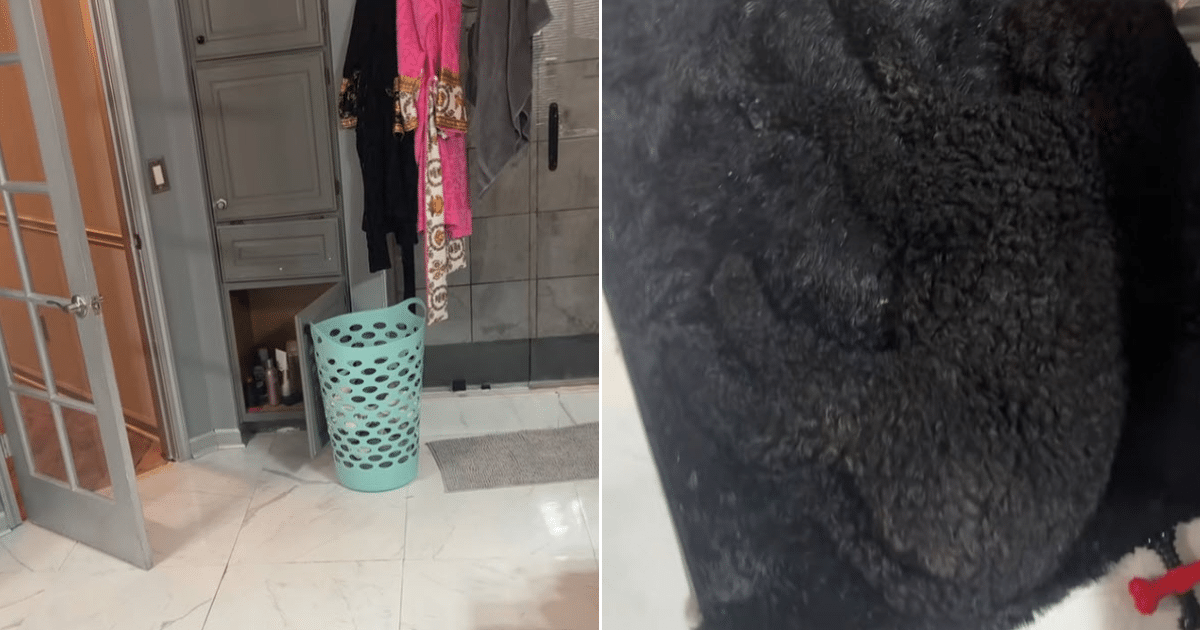

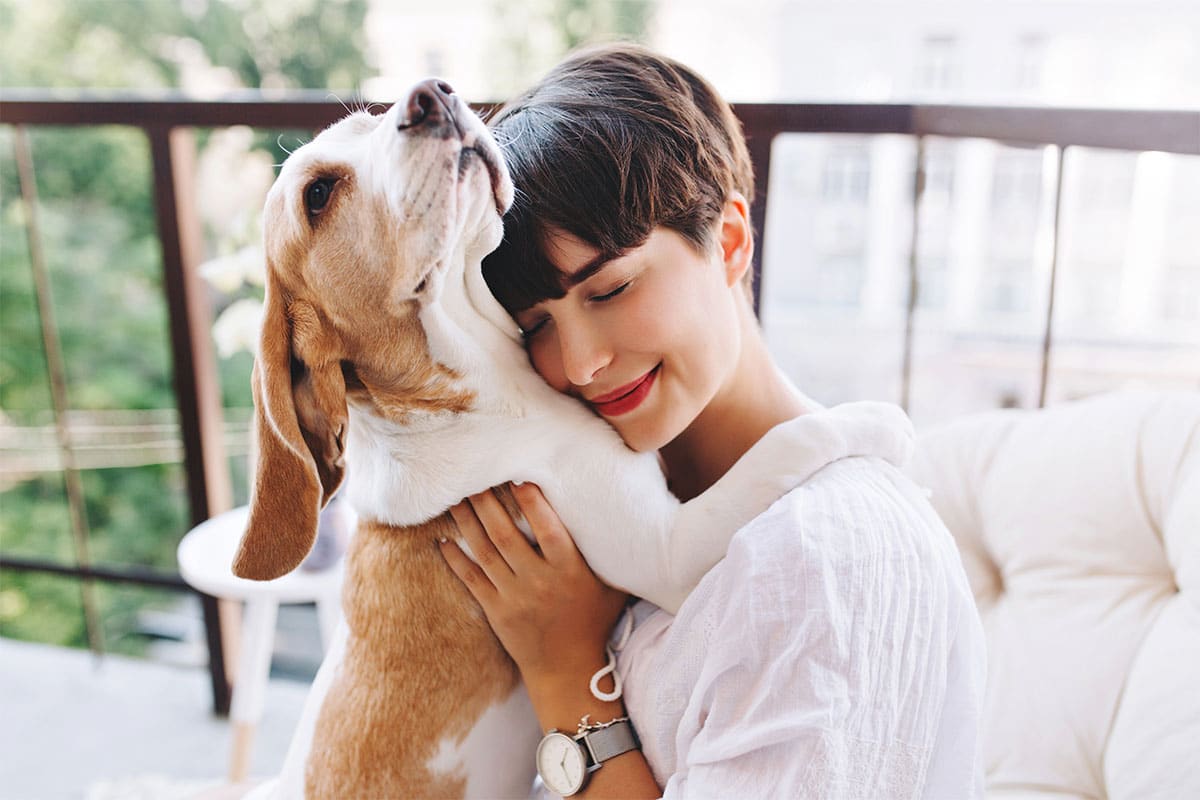

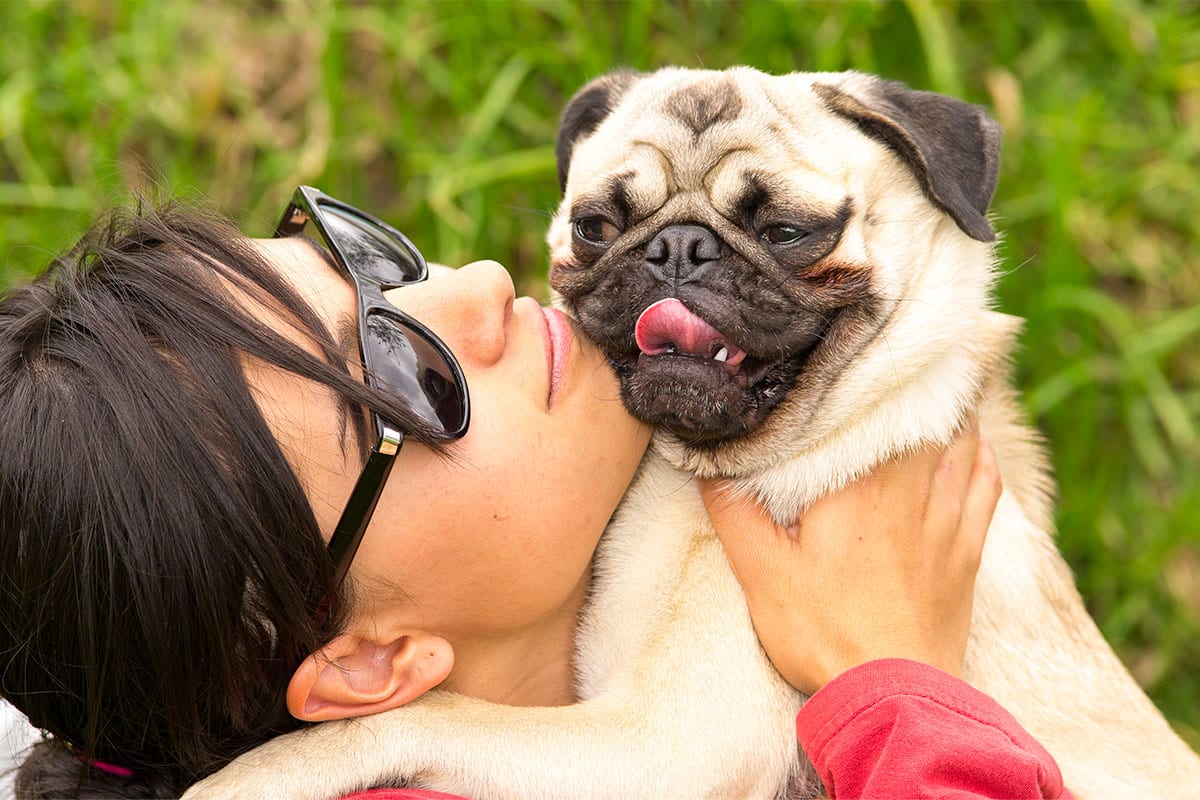
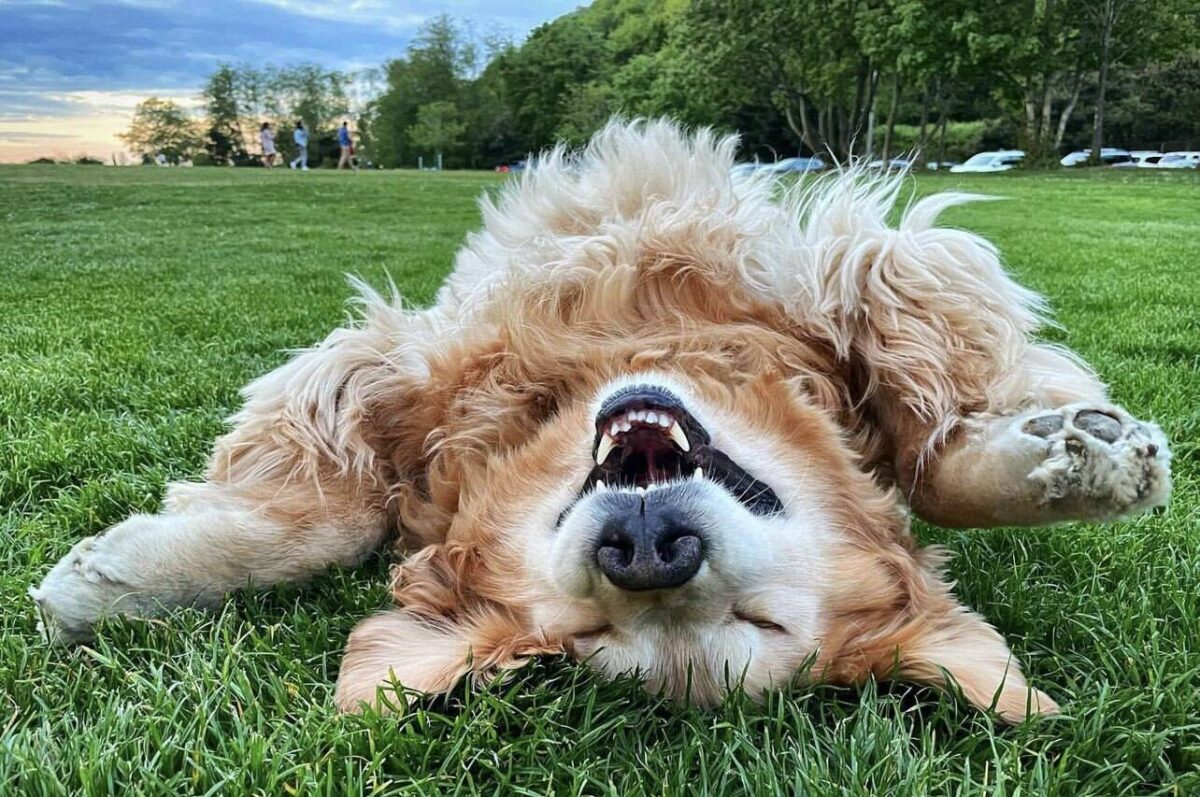

 English (US) ·
English (US) ·